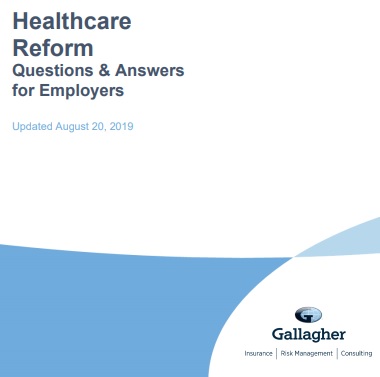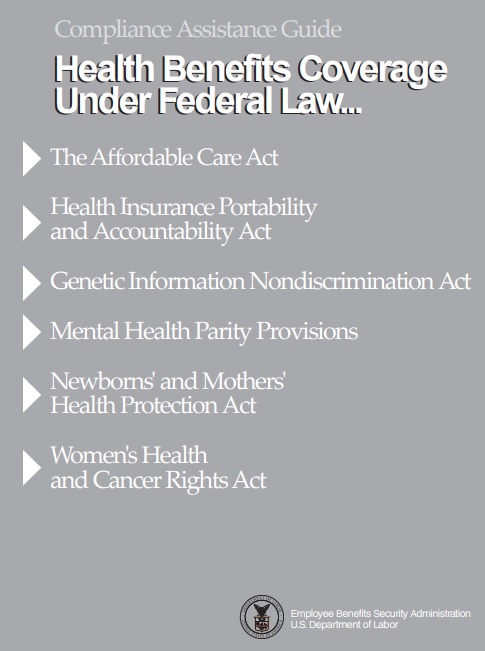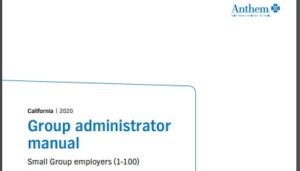Eligible Employee Definition Health Insurance
California Law under ACA/Health Care Reform says:
“Eligible employee” means
either of the following: §10753 Non Grandfathered Plans (f)
(1) Any permanent employee who is actively engaged
"Actively at Work" or "Not Disabled" CA DOI Bulletin 94-9A
Blue Shield Q & A on Corona Virus issues
See our webpage on AB 5 on 1099 employees
on a full-time basis in the conduct of the business of the small employer with a normal workweek of an average of 30 hours per week over the course of a month, in the small employer’s regular place of business, who has met any statutorily authorized applicable waiting period requirements.
The term includes sole proprietors or partners of a partnership,
[But it doesn't allow them to be a 1 employee - employer group. They need an individual plan.
See last line of Employer definition 10753 q 1 - only to extent required by PPACA ]
if they are actively engaged on a full-time basis in the small employer’s business, and they are included as employees under a health benefit plan of a small employer, but does not include employees who work on a part-time, temporary, or substitute basis.
AB 5 - 1099 - Independent Contractor or employee?
It includes any eligible employee, as defined in this paragraph, who obtains coverage through a guaranteed association. Employees of employers purchasing through a guaranteed association shall be deemed to be eligible employees if they would otherwise meet the definition except for the number of persons employed by the employer.
A permanent employee who works at least
20 hours but not more than 29 hours
is deemed to be an eligible employee if all four of the following apply:
(A) The employee otherwise meets the definition of an eligible employee except for the number of hours worked.
(B) The employer offers the employee health coverage under a health benefit plan.
(C) All similarly situated individuals are offered coverage under the health benefit plan.
(D) The employee must have worked at least 20 hours per normal workweek for at least 50 percent of the weeks in the previous calendar quarter.
The insurer may request any necessary information to document the hours and time period in question, including, but not limited to, payroll records and employee wage and tax filings.
View Definition Blue Cross Underwriting Requirements
(2) Any member of a guaranteed association as defined in subdivision (s).
See our other pages on Employer – Employee Definition
Real Estate Agents and direct sellers
Section §3598 26 US Code –
(a)General rule For purposes of this title, in the case of services performed as a qualified real estate agent or as a direct seller—
Other Laws Defining Employees
- California Senate Bill 125 (2015).
- 26 C.F.R. § 31.3401(c)-1(b) Employee Definition
- Common Ownership
- kqed.org/32-hour-workweek-new-bill
Health Coverage #Guide
Art Gallagher
Health Care Reform FAQ's
Understanding Health Reform
***********************************
Compliance #Assistance Guide from DOL.Gov Health Benefits under Federal Law
- Health Care Reform Explained Kaiser Foundation Cartoon VIDEO
- Choosing a Health Plan for Your Small Business VIDEO DOL.gov
- ACA Quick Reference Guide California Small Group Employers Revision 2020 Word & Brown
- kff.org/health-policy-101/
Anthem Blue Cross
Group #Administrator Manual 9/2022 ONLINE
- Authoritative answers to questions like:
- Adding or Terminating Employees
- Our Video explanation - 2nd Video
- Late Enrollee's Page 32
- Cal COBRA Information
- Our Video explanation - 2nd Video
- Adding or Terminating Employees
- New Enrollment Checklist
Just Enter your census or securely send us an excel spreadsheet or a list of employees and get instant proposals for California
EDD California 2024 Employers Guide #DE44 

- Forms & Publications EDD
- FORMS REQUIRED TO GIVE NEW EMPLOYEES
- More workplace protections in 2022 New laws will shield employee health, safety and wages, but some ‘job killer’ bills were axed Los Angeles Times
- Social Security Forms
************************************************************
New Federal Reporting Requirement for Beneficial Ownership Information (BOI)
- Beneficial Ownership Information Reporting Suspended Smart Tax Fin LLC.com
- Effective January 1, 2024, many companies in the United States must report information about their beneficial owners—the individuals who ultimately own or control the company—to the Financial Crimes Enforcement Network (FinCEN), a bureau of the U.S. Department of the Treasury.
- In 2021, Congress enacted the bipartisan Corporate Transparency Act to curb illicit finance. This law requires many companies doing business in the United States to report information about who ultimately owns or controls them.
- Your company may need to report information about its beneficial owners if it is:
- 1. a corporation, a limited liability company (LLC), or was otherwise created in the United States by filing a document with a secretary of state or any similar office under the law of a state or Indian tribe; or
- 2. a foreign company and was registered to do business in any U.S. state or Indian tribe by such a filing.
- FinCEN’s Small Entity Compliance Guide includes checklists for each of the 23 exemptions that may help determine whether your company qualifies for an exemption.
- My CPA's Opinion - this is OVERKILL
#Insubuy Travel Health Insurance
Instant Quotes, Details and ONLINE Enrollment
Steve talks about International Travel Insurance VIDEO
US State Department - Travel - Insurance
Our webpage on Travel Insurance
Related Pages in Participation & Contribution Requirements Section
Brother - Sister - Sibling Side Pages Subpages
View our website with your Desktop or Tablet for the most information
Technical Links & Resources
National Underwriter Health Reform Facts
ABX1-2 Pan 5.2013 Brings CA into compliance with Health Care Reform














